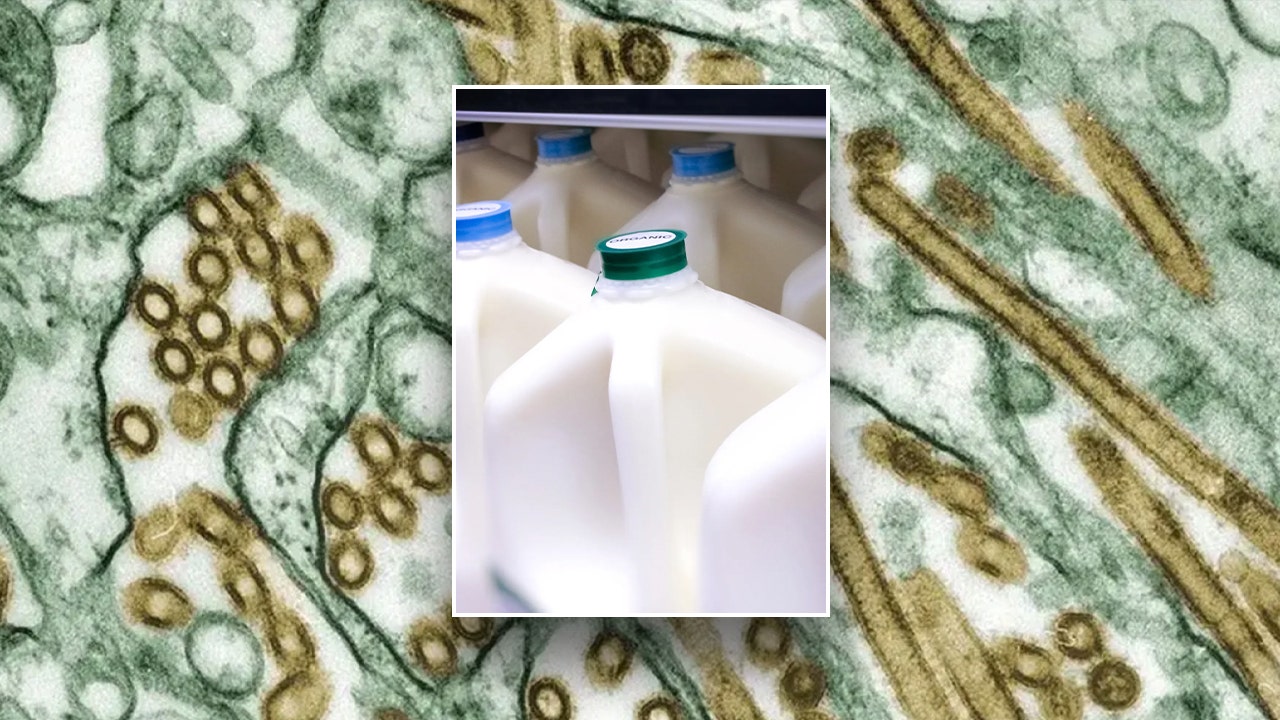Unraveling the Mystery: Bird Flu Discovered in Arizona Dairy Milk
Recent tests have revealed the presence of bird flu in milk from dairy cattle in Arizona, following its initial detection in neighboring Nevada. This alarming development raises questions about food safety and the potential impact on the dairy industry. The implications of this discovery are vast, affecting not just the local economy but also raising concerns among consumers about the safety of dairy products.
Understanding Bird Flu: The Basics
Bird flu, or avian influenza, is a viral infection that primarily affects birds but can also infect other animals, including humans. The virus exists in various strains, some of which can be highly pathogenic. The most notable strain, H5N1, has been known to cause severe disease in both birds and humans. Transmission typically occurs through direct contact with infected birds or contaminated environments.
While bird flu is a well-known threat to poultry, its emergence in dairy cattle raises significant questions. How does this happen, and what does it mean for the dairy industry and consumers alike?
How Bird Flu Affects Dairy Cattle
Bird flu is not typically associated with dairy cattle; however, cross-species transmission is possible, particularly in environments where animals are in close proximity. In Arizona, the detection of the virus in milk suggests that the virus might have been transmitted to cattle through contaminated feed or water, or direct contact with infected birds.
The presence of bird flu in dairy cattle is concerning for several reasons:
- Health Risks: Although the likelihood of transmission to humans through milk is low, it is not impossible. Pasteurization, a common practice in the dairy industry, effectively kills most pathogens, but the situation warrants close monitoring.
- Economic Impact: The dairy sector in Arizona contributes significantly to the state’s economy. Concerns over bird flu could lead to decreased consumer confidence, resulting in reduced sales.
- Regulatory Scrutiny: This discovery is likely to trigger increased regulatory oversight, affecting how dairy products are produced and tested.
Consumer Concerns and Safety Measures
With the revelation of bird flu in Arizona dairy milk, consumers have valid concerns about food safety. It is crucial to emphasize that the risk of contracting the virus through properly processed dairy products remains low. Here are some key points for consumers to consider:
- Pasteurization: Most dairy products undergo pasteurization, which kills harmful bacteria and viruses. This process significantly reduces any potential health risks associated with milk consumption.
- Quality Assurance: Dairy producers are adhering to strict quality control measures. Testing protocols for bird flu and other pathogens are being reinforced to ensure consumer safety.
- Transparency: Consumers are encouraged to stay informed about the origin of their dairy products. Many producers are committed to transparency in their processes and will provide updates on safety measures.
Impact on the Dairy Industry
The detection of bird flu in Arizona dairy milk poses several challenges for the dairy industry. Some potential impacts include:
- Market Fluctuations: As consumers become more aware of the situation, there may be fluctuations in demand for dairy products. This could lead to economic instability for farmers.
- Increased Regulations: The government may implement stricter regulations regarding dairy production, which could increase operational costs for farmers.
- Research and Development: There may be a push for more research into avian influenza and its impacts on livestock, leading to improved preventative measures in the future.
Government Response and Industry Adaptation
In response to the detected bird flu cases, state and federal authorities are mobilizing to address the situation. Key actions include:
- Increased Surveillance: Authorities are ramping up surveillance of livestock to identify and contain any further spread of the virus.
- Public Awareness Campaigns: Educational campaigns are underway to inform the public about bird flu, dairy safety, and best practices for consumption.
- Support for Farmers: Programs may be introduced to support farmers facing economic hardship due to decreased consumer confidence and potential regulatory changes.
Looking Ahead: The Future of Dairy in Arizona
Despite the current challenges posed by the discovery of bird flu in Arizona dairy milk, there is a silver lining. The dairy industry is resilient. Farmers and producers are known for their ability to adapt and innovate in the face of adversity. Here are some optimistic perspectives on the future:
- Strengthened Protocols: The incident could lead to the implementation of more robust biosecurity measures, ultimately enhancing the safety of dairy products.
- Consumer Education: Increased awareness around food safety can empower consumers to make informed choices, fostering greater trust in the dairy industry.
- Technological Advancements: Advances in technology may lead to better diagnostic tools and practices for early detection of pathogens, benefitting the entire agricultural sector.
Conclusion: Navigating the Challenges Ahead
The recent detection of bird flu in Arizona dairy milk is undoubtedly a concerning development, but it also presents an opportunity for growth and improvement within the industry. By focusing on safety, transparency, and innovation, the dairy sector can navigate these challenges, ensuring that consumers continue to receive safe and high-quality products. As the situation evolves, staying informed and engaged will be crucial for both consumers and producers alike.
In summary, while the presence of bird flu in milk raises legitimate concerns, the industry’s proactive approach and commitment to safety will play a pivotal role in mitigating risks and restoring consumer confidence in Arizona’s dairy products.
See more WebMD Network



